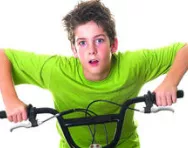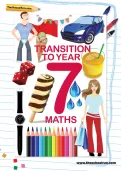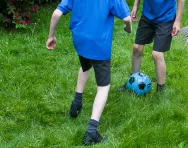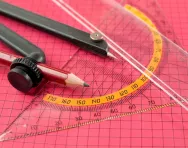Important update from TheSchoolRun
For the past 13 years, TheSchoolRun has been run by a small team of mums working from home, dedicated to providing quality educational resources to primary school parents. Unfortunately, rising supplier costs and falling revenue have made it impossible for us to continue operating, and we’ve had to make the difficult decision to close. The good news: We’ve arranged for another educational provider to take over many of our resources. These will be hosted on a new portal, where the content will be updated and expanded to support your child’s learning.
What this means for subscribers:
- Your subscription is still active, and for now, you can keep using the website as normal — just log in with your usual details to access all our articles and resources*.
- In a few months, all resources will move to the new portal. You’ll continue to have access there until your subscription ends. We’ll send you full details nearer the time.
- As a thank you for your support, we’ll also be sending you 16 primary school eBooks (worth £108.84) to download and keep.
A few changes to be aware of:
- The Learning Journey weekly email has ended, but your child’s plan will still be updated on your dashboard each Monday. Just log in to see the recommended worksheets.
- The 11+ weekly emails have now ended. We sent you all the remaining emails in the series at the end of March — please check your inbox (and spam folder) if you haven’t seen them. You can also follow the full programme here: 11+ Learning Journey.
If you have any questions, please contact us at [email protected]. Thank you for being part of our journey it’s been a privilege to support your family’s learning.
*If you need to reset your password, it will still work as usual. Please check your spam folder if the reset email doesn’t appear in your inbox.
Key Stage 3 PE – the lowdown

Although the range of sports may vary from school to school, in Key Stage 3 PE children will have opportunities to explore and further develop more complex tactics within the realm of team sports.
The emphasis in PE in Key Stage 3 is on inspiring children to excel in competitive sport and other physically demanding activities. Pupils are expected to develop their health and fitness, alongside qualities like teamwork, character and respect through competing in sports. It’s critical that the school’s PE programme prepares pupils for a lifetime of fitness activity.
The KS3 PE curriculum
In Years 7 to 9, children are taught to:
- play a range of competitive sports as a team and as individuals, for example badminton, basketball, cricket, football, hockey, netball, rugby, rounders and tennis.
- develop their technique and performance in competitive sports like gymnastics and athletics.
- perform dances involving advanced techniques and a range of styles and forms.
- take part in outdoor and adventurous pursuits that involve teamwork, trust and problem-solving.
- analyse their performance and strive to reach their personal best.
- take part in physical activities or competitive sports outside school.


Prepare your child for Year 7
- English & Maths transition packs
- Practise journalistic writing, figurative language, persuasive text and more
- Revise key maths methods and concepts
Lesson examples
Here are the kinds of things your child might get up to in PE at school:
- Year 7 pupils design their own dance sequences using the floor and apparatus. They include six actions incorporating flight, rolls and balances. Later they must adapt their routines to incorporate a dance partner, using synchronisation or canon.
- A Year 8 class has been working on developing basic attacking and defending strategies in outdoor games. They learn how to organise themselves as a defence, how to mark a player, and how to keep possession of the ball using basic strategies such as changing the speed and direction of an attack.
- Pupils practise warming up for hurdles. They jog and sprint in bursts before trying to refine their arm actions, which can lead to their upper bodies twisting as they run over the hurdles.
Help your child at home
- Walk to and from school and whenever else possible.
- Encourage moderately intensive activity for at least one hour every day (for example, four 15-minute periods) such as brisk walking, dance, games, swimming, cycling, active play or sport.
- Get your child to choose activities that enhance and maintain muscular strength, flexibility and bone health at least twice a week, such as climbing, skipping, jumping or gymnastics.
- Speak to your child about the importance of staying healthy and active.
- Teach your child to be aware of dangers such as smoking, drinking, high blood pressure and stress.
- Encourage a healthy diet daily with five fruit and vegetables in a variety of types and colours.








